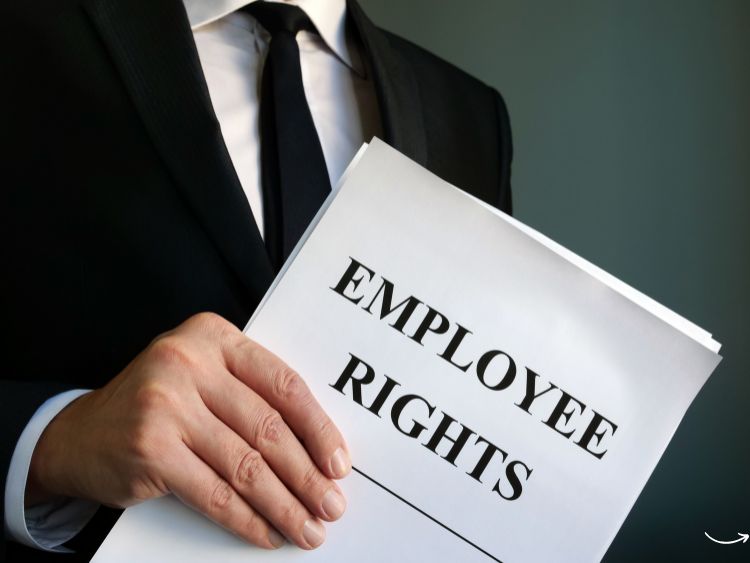Hey there, Florida employees! If you’re curious about your rights in the workplace, you’ve come to the right place. Navigating the world of employment can be tricky, but understanding your rights is crucial to ensuring you’re treated fairly. In this article, we’ll break down the key aspects of Florida employee rights, so you can be well-informed and confident in your role. Buckle up, and let’s dive into the world of employee rights in the Sunshine State!
Understanding Employee Rights in Florida
Florida employee rights cover a wide range of areas, from wage laws and overtime pay to workplace safety and discrimination protection. Knowing your rights can empower you to take action if you feel your employer is not treating you fairly.
Wage and Hour Laws
One of the most fundamental rights for employees is the right to fair compensation. Florida follows the federal minimum wage, but the state also has its own regulations.
- Minimum Wage: As of 2024, Florida’s minimum wage is $12.00 per hour. This rate is higher than the federal minimum wage, which is $7.25 per hour.
- Overtime Pay: Florida adheres to the Fair Labor Standards Act (FLSA), which mandates overtime pay at 1.5 times the regular rate for hours worked over 40 in a workweek.
- Tips and Gratuities: Tipped employees must be paid a minimum wage of $7.98 per hour, with tips making up the difference to reach the state’s minimum wage.
Breaks and Meal Periods
Florida law does not require employers to provide meal or rest breaks to employees aged 18 and older. However, if breaks are given, they must comply with the FLSA. Short breaks (usually 20 minutes or less) are considered compensable work hours.
Workplace Safety
Your safety at work is paramount. The Occupational Safety and Health Administration (OSHA) sets and enforces safety standards to ensure workplace safety.
- Right to a Safe Workplace: Employees have the right to work in an environment that is free from serious hazards.
- Reporting Hazards: You can report workplace hazards to OSHA without fear of retaliation from your employer.
- Access to Safety Records: Employees have the right to access records of work-related injuries and illnesses.
Anti-Discrimination Laws
Discrimination in the workplace is illegal. Both federal and state laws protect employees from discrimination based on various factors.
- Protected Classes: It’s illegal to discriminate based on race, color, religion, sex, national origin, age (40 or older), disability, or genetic information.
- Retaliation Protection: Employees are protected from retaliation if they file a discrimination complaint or participate in an investigation.
- Florida Civil Rights Act: This state law provides additional protection against employment discrimination and complements federal laws.
Navigating Employment Contracts
Employment contracts can be complex, but understanding their terms is essential for protecting your rights.
At-Will Employment
Florida is an at-will employment state, meaning that either the employer or the employee can terminate the employment relationship at any time, with or without cause.
- Exceptions: Exceptions to at-will employment include contracts specifying a fixed term and prohibiting termination without just cause.
Non-Compete Agreements
Non-compete agreements are common in many industries, but they must meet specific criteria to be enforceable in Florida.
- Reasonableness: These agreements must be reasonable in duration, geographic scope, and the nature of the restriction.
- Legitimate Business Interest: Employers must prove that the non-compete clause protects legitimate business interests.
Understanding Severance Agreements
Severance agreements outline the terms under which an employee leaves a company, often including financial compensation and other benefits.
- Review Before Signing: It’s crucial to review these agreements carefully and consider seeking legal advice to ensure your rights are protected.
Workers’ Compensation
If you get injured on the job, Florida’s workers’ compensation laws provide benefits to help you recover.
Benefits Overview
Workers’ compensation covers medical expenses, lost wages, and disability benefits.
- Medical Benefits: These include all necessary medical treatments related to the injury.
- Lost Wages: If your injury prevents you from working, you may receive a portion of your lost wages.
- Disability Benefits: These are provided if you suffer a permanent injury that affects your ability to work.
Filing a Claim
Knowing how to file a workers’ compensation claim can make the process smoother.
- Report the Injury: Notify your employer immediately after the injury occurs.
- Seek Medical Attention: Get treated by a doctor authorized by your employer’s insurance company.
- File a Claim: Your employer will file a First Report of Injury or Illness with their insurance carrier.
Family and Medical Leave Act (FMLA)
Balancing work and personal life can be challenging, especially during significant life events. The Family and Medical Leave Act (FMLA) provides unpaid, job-protected leave for eligible employees.
Eligibility Criteria
To qualify for FMLA leave, you must:
- Work for a covered employer (public agencies, public and private elementary and secondary schools, and companies with 50 or more employees).
- Have worked for the employer for at least 12 months.
- Have completed at least 1,250 hours of service in the 12 months prior to the leave.
Reasons for Taking FMLA Leave
FMLA leave can be taken for various reasons, including:
- The birth and care of a newborn child.
- Adoption or foster care placement of a child.
- Caring for an immediate family member with a serious health condition.
- A serious health condition that makes you unable to perform your job.
Employee Privacy Rights
Privacy in the workplace is a growing concern. Florida employees have certain rights regarding their personal information and activities.
Monitoring and Surveillance
While employers have the right to monitor work-related activities, there are limits.
- Notice Requirement: Employers should inform employees about monitoring policies.
- Reasonable Expectation of Privacy: Certain areas, such as restrooms and locker rooms, are off-limits for surveillance.
Social Media and Personal Devices
Employers may have policies regarding the use of social media and personal devices at work.
- Social Media Policies: Employers can regulate social media use during work hours, but they cannot prohibit lawful off-duty activities.
- BYOD Policies: Bring Your Own Device (BYOD) policies should balance the employer’s need to protect company data with the employee’s privacy rights.
FAQs About Florida Employee Rights
What is the minimum wage in Florida?
As of 2024, the minimum wage in Florida is $12.00 per hour.
Can my employer fire me without a reason in Florida?
Yes, Florida is an at-will employment state, meaning employers can terminate employees without a reason, except in cases of discrimination or violation of employment contracts.
How do I report workplace safety violations?
You can report workplace safety violations to OSHA without fear of retaliation from your employer.
What should I do if I experience workplace discrimination?
If you experience workplace discrimination, you can file a complaint with the Equal Employment Opportunity Commission (EEOC) or the Florida Commission on Human Relations.
Are non-compete agreements enforceable in Florida?
Yes, non-compete agreements are enforceable if they are reasonable in scope, duration, and geographic area, and if they protect legitimate business interests.
Conclusion
Understanding your rights as an employee in Florida is essential for ensuring fair treatment and a safe work environment. From wage laws and workplace safety to anti-discrimination protections and privacy rights, knowing what you’re entitled to can help you navigate your employment journey with confidence. Remember, staying informed is your best defense against unfair treatment. If you ever feel your rights are being violated, don’t hesitate to seek legal advice or report the issue to the appropriate authorities.
Authoritative Links
- U.S. Department of Labor: https://www.dol.gov/
- Occupational Safety and Health Administration (OSHA): https://www.osha.gov/
- Equal Employment Opportunity Commission (EEOC): https://www.eeoc.gov/
- Florida Commission on Human Relations: https://fchr.myflorida.com/
- Fair Labor Standards Act (FLSA): https://www.dol.gov/agencies/whd/flsa







